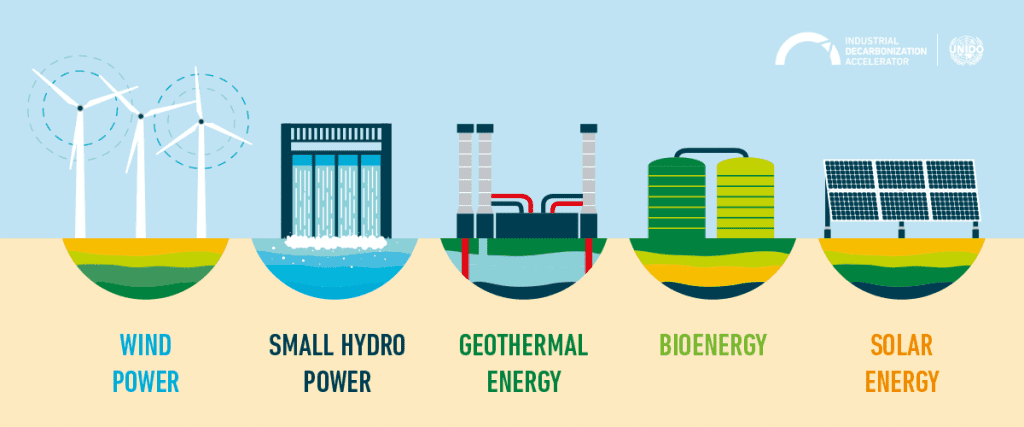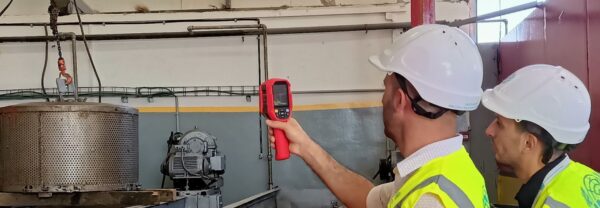Renewables and alternative fuels
Photo credit: Raphael Pouget / Climate Visuals Countdown
Supporting industry in a just renewable transition
According to IRENA — the global authority on renewable energy — when pursued together, renewable energy and energy efficiency measures have the potential to achieve 90 per cent of the carbon reductions required to limit global temperature rise in line with the Paris Agreement goals.
Renewables for industry
Worldwide, industrial heat generation mainly relies on the burning of fossil fuels: predominantly natural gas and the combustion of coal. Industrial heating applications account for nearly 20 per cent of global energy consumption. The good news is that numerous emerging technologies and approaches are helping industries from all sectors to generate heat from renewable sources. In particular, industrial organizations are beginning to integrate biomass, biogas, solar thermal systems, hydrogen and waste heat recovery technologies into their energy mix.
A two-pronged approach
If your total industrial energy demand is lower, you can reach higher renewable energy shares. That’s why the Accelerator takes a two-pronged approach to support industry in a just renewable transition. First by assessing and integrating energy efficiency methods, then by advising and training industry professionals on the implementation of renewable energy sources. This might include investing in better insulation, more efficient equipment, waste heat recovery or re-dimensioning of equipment like boilers and motors to first make energy savings. Once these are secured, the next stage is considering renewable energy options like solar, bio-energy and others.
Ongoing efforts
Currently, in Egypt, through a series of demonstration projects, UNIDO is introducing the viability and benefits of investing in energy efficient motors and quality components for solar systems. In Turkey we are showcasing modern and environmentally safe bioenergy technologies and processes to generate industrial heat and electricity from agricultural waste. While in South Africa we are rolling out an industrial biogas integration training programme. This is designed to demonstrate how biogas can best be integrated into existing South African manufacturing and production processes.
Latest news and resources
Decarb Solutions
We explore specific decarbonization solutions and share easy-to-understand knowledge packages to inspire and enable industry leaders, energy managers, consultants, and policy makers to take the first steps towards enhancing their energy systems, and to shift away from fossil fuels.






